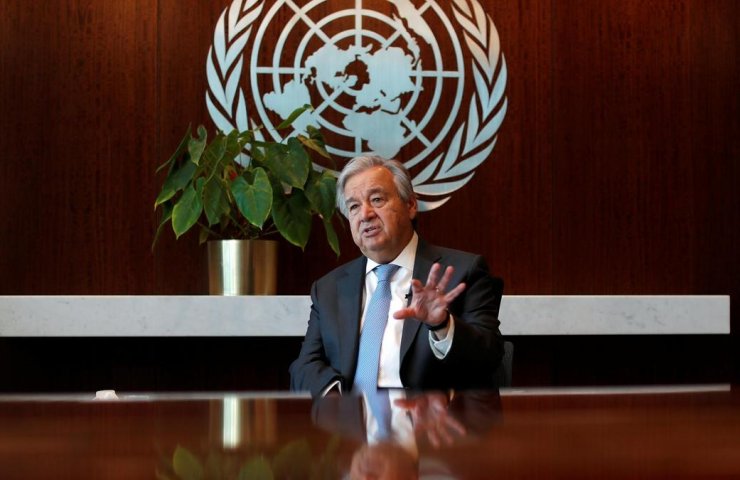The international community can and must achieve the complete decarbonization of the world economy by 2050. This was announced by Secretary General Antonio Guterres, speaking at the third annual economic forum Bloomberg. The head of the UN proposed to actively introduce a tax on carbon emissions, as well as to abandon coal mining and cancel subsidies for fossil fuels. He noted that today most countries in the world have announced their intention to achieve zero emissions by 2050.
“We recently heard some encouraging statements. The European Union, Japan and the Republic of Korea, as well as more than 110 other countries, have pledged to become carbon neutral by 2050. China has announced that it will do this by 2060, ”said Anton Guterres.
The Secretary General proposed to reduce taxes on income of the population, and to take more taxes from those who pollute the atmosphere with greenhouse gases. “Carbon has to have a price. The days of fossil fuel subsidies are over. We must gradually abandon coal as well, ”Guterres said.
He believes that the goal of achieving carbon neutrality should be integrated into all economic and tax strategies. This will bring about transformation in industry, agriculture, transport and the energy sector.
Carbon neutral, or zero carbon, means carbon dioxide emissions must not exceed the amount absorbed by oceans and forests. Recalling today's challenges and problems, Guterres urged to solve them by joint efforts.
“The world is now facing a health crisis, an economic disaster and a climate emergency. The UN has focused all its efforts on saving lives, preventing transmission of the virus and mitigating the impact of COVID-19. We are committed to a massive rescue package for the most vulnerable people and countries. We are striving for a ceasefire on a worldwide scale and fighting disinformation, ”the UN head stressed.
He believes that today everyone needs to learn from the pandemic and fight all problems at the same time, including social inequality. As Guterres said, the current pandemic has shown that in an emergency, humanity can think and act large-scale, which means that you need to adhere to such principles, overcoming other crises.
“We are all focused on fighting the pandemic right now and rightly so. But, overcoming one crisis, we have the opportunity to find a way out of others, ”said the UN head.




